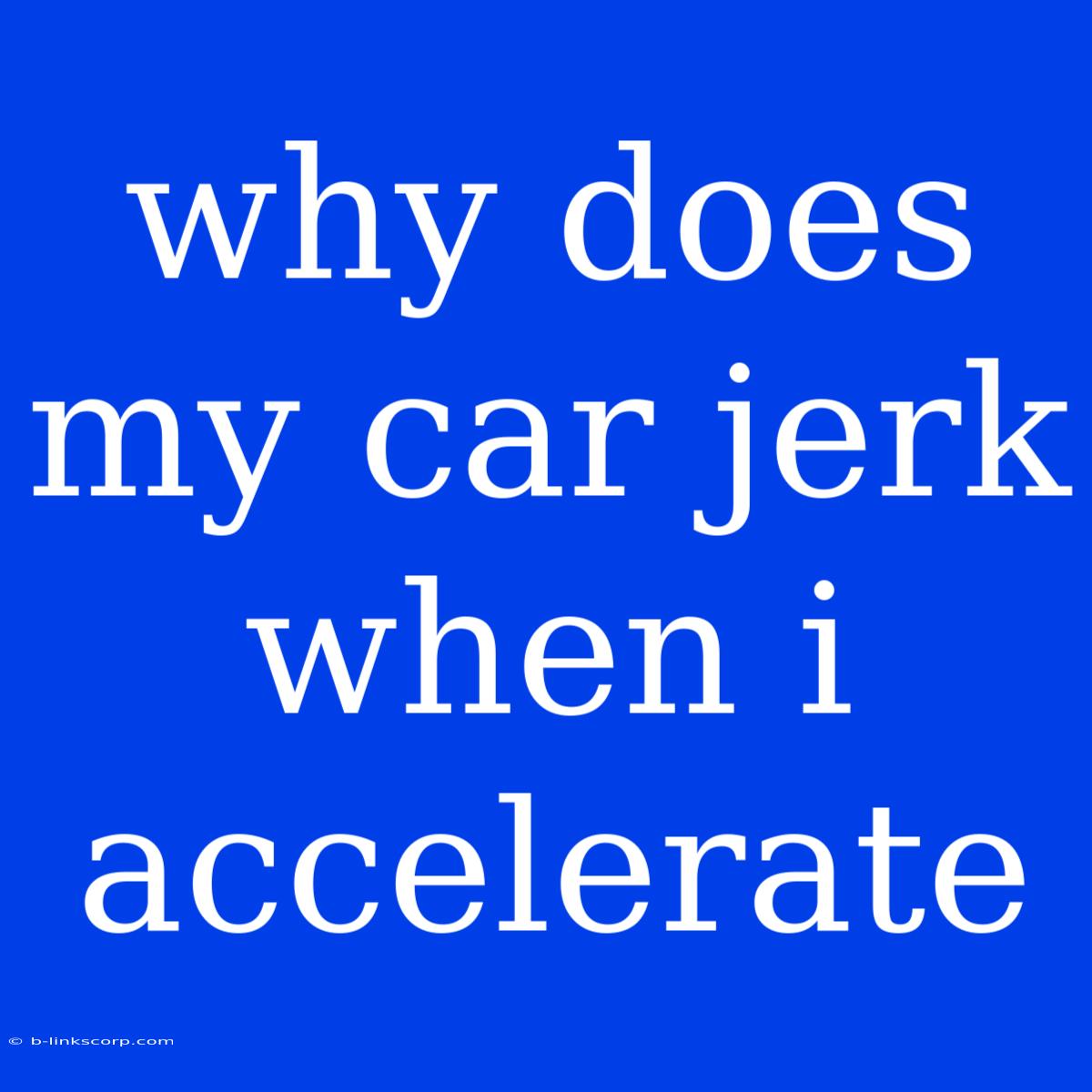Why Does My Car Jerk When I Accelerate?
Experiencing a jerking sensation when you accelerate can be both frustrating and concerning. This issue could stem from various underlying problems, but understanding the potential culprits can help you troubleshoot and get your car back on track.
Here's a breakdown of common reasons why your car might be jerking when you accelerate:
1. Spark Plugs and Ignition System Issues
- Faulty Spark Plugs: Worn-out or fouled spark plugs can cause misfires, leading to a jerking sensation during acceleration. The spark plugs are responsible for igniting the fuel-air mixture in the cylinders, and if they're not working properly, the combustion process will be inconsistent.
- Damaged Ignition Wires: Cracked or corroded ignition wires can cause a weak spark or complete failure to ignite the fuel mixture. This can also lead to misfires and jerking.
- Ignition Coil Problems: The ignition coil delivers a high voltage to the spark plugs. If the coil is faulty, it can reduce the spark strength or prevent the plugs from firing altogether.
2. Fuel System Malfunctions
- Clogged Fuel Filter: A clogged fuel filter restricts fuel flow to the engine. This can cause a lean fuel mixture, leading to misfires and jerking.
- Fuel Injector Problems: Dirty or faulty fuel injectors can cause inconsistent fuel delivery, leading to uneven combustion and jerking.
- Fuel Pump Issues: A failing fuel pump can deliver insufficient fuel pressure, causing the engine to struggle and jerk during acceleration.
3. Transmission Problems
- Slipping Clutch (Automatic Transmission): A worn-out or slipping clutch in an automatic transmission can cause a loss of power during acceleration, resulting in a jerking sensation.
- Transmission Fluid Problems: Low or contaminated transmission fluid can lead to transmission slippage and jerking.
4. Engine-Related Issues
- Dirty Air Filter: A clogged air filter restricts airflow to the engine, causing a lean fuel mixture and misfires.
- Vacuum Leaks: Leaks in the vacuum lines can disrupt engine timing and fuel delivery, resulting in jerking.
- Mass Airflow Sensor (MAF) Problems: A faulty MAF sensor can provide inaccurate air flow readings to the engine control unit, leading to misfires and jerking.
5. Other Potential Causes
- Faulty Oxygen Sensor: An inaccurate oxygen sensor reading can disrupt the engine's air-fuel mixture, causing jerking.
- Loose Engine Mounts: Loose engine mounts can cause the engine to move excessively during acceleration, leading to a jerking sensation.
- Throttle Body Issues: A dirty or malfunctioning throttle body can disrupt the smooth acceleration of the engine.
Get Your Car Checked!
If your car is jerking when you accelerate, it's crucial to get it checked out by a qualified mechanic. They can diagnose the problem and recommend the necessary repairs to ensure your car is safe and running smoothly.
Remember: Ignoring a jerking sensation can lead to more serious problems and potentially damage your engine.

